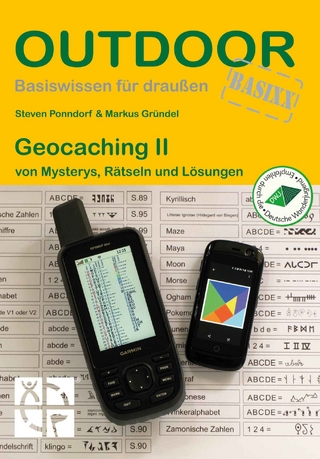
The New Political Islam
Human Rights, Democracy, and Justice
Seiten
2018
University of Pennsylvania Press (Verlag)
978-0-8122-4972-9 (ISBN)
University of Pennsylvania Press (Verlag)
978-0-8122-4972-9 (ISBN)
Islamist political parties and groups are on the rise throughout the Muslim world, constituting a new political Islam that is global in scope and yet local in action. Emmanuel Karagiannis explains how various Islamists have endorsed human rights, democracy, and justice to gain influence and mobilize supporters.
Explains how various Islamists have endorsed human rights, democracy, and justice to gain influence and mobilize supporters
Islamist political parties and groups are on the rise throughout the Muslim world and in Muslim communities in the West. Owing largely to the threat of terrorism, political Islam is often portrayed as a monolithic movement embodying fundamentalism and theocracy, an image magnified by the rise of populism and xenophobia in the United States and Europe. Reality, however, is far more complicated. Political Islam has evolved considerably since its spectacular rise decades ago, and today it features divergent viewpoints and contributes to discrete but simultaneous developments worldwide. This is a new political Islam, more global in scope but increasingly local in action.
Emmanuel Karagiannis offers a sophisticated analysis of the different manifestations of contemporary Islamism. In a context of global economic and social changes, he finds local manifestations of Islamism are becoming both more prevalent and more diverse. Many Islamists turn to activism, still more participate formally in the democratic process, and some, in far fewer numbers, advocate violence—a wide range of political persuasions and tactics that reflects real and perceived political, cultural, and identity differences.
Synthesizing prodigious research and integrating insights from the globalization debate and the literature on social movements, The New Political Islam seeks to explain the processes and factors leading to distinctive fusions of "the global" and "the local" across the landscape of contemporary political Islam. Examining converts to Islam in Europe, nonviolent Islamists with global reach, Islamist parties in Turkey, Egypt, and Tunisia, and militant Shia and Sunni groups in Syria and Iraq, Karagiannis demonstrates that Islamists have embraced ideas and practices from the global marketplace and have attempted to implement them locally. He looks closely at the ways in which Islamist activists, politicians, and militants have utilized the language of human rights, democracy, and justice to gain influence and popular support and to contend for power.
Explains how various Islamists have endorsed human rights, democracy, and justice to gain influence and mobilize supporters
Islamist political parties and groups are on the rise throughout the Muslim world and in Muslim communities in the West. Owing largely to the threat of terrorism, political Islam is often portrayed as a monolithic movement embodying fundamentalism and theocracy, an image magnified by the rise of populism and xenophobia in the United States and Europe. Reality, however, is far more complicated. Political Islam has evolved considerably since its spectacular rise decades ago, and today it features divergent viewpoints and contributes to discrete but simultaneous developments worldwide. This is a new political Islam, more global in scope but increasingly local in action.
Emmanuel Karagiannis offers a sophisticated analysis of the different manifestations of contemporary Islamism. In a context of global economic and social changes, he finds local manifestations of Islamism are becoming both more prevalent and more diverse. Many Islamists turn to activism, still more participate formally in the democratic process, and some, in far fewer numbers, advocate violence—a wide range of political persuasions and tactics that reflects real and perceived political, cultural, and identity differences.
Synthesizing prodigious research and integrating insights from the globalization debate and the literature on social movements, The New Political Islam seeks to explain the processes and factors leading to distinctive fusions of "the global" and "the local" across the landscape of contemporary political Islam. Examining converts to Islam in Europe, nonviolent Islamists with global reach, Islamist parties in Turkey, Egypt, and Tunisia, and militant Shia and Sunni groups in Syria and Iraq, Karagiannis demonstrates that Islamists have embraced ideas and practices from the global marketplace and have attempted to implement them locally. He looks closely at the ways in which Islamist activists, politicians, and militants have utilized the language of human rights, democracy, and justice to gain influence and popular support and to contend for power.
Emmanuel Karagiannis is Reader in International Security in King's College London's Department of Defence Studies.
Preface
Introduction
PART I. ISLAMIST ACTIVISM AND THE MASTER FRAME OF HUMAN RIGHTS
Chapter 1. The Activism of European Converts
Chapter 2. The Activism of Hizb ut-Tahrir
PART II. ISLAMIST POLITICS AND THE MASTER FRAME OF DEMOCRACY
Chapter 3. The Politics of Islamo-Democracy in Turkey, Egypt, and Tunisia
Chapter 4. The Politics of Electoral Salafism in Egypt and Tunisia
PART III. ISLAMIST MILITANCY AND THE MASTER FRAME OF JUSTICE
Chapter 5. The Militancy of Shia Groups in Lebanon, Iraq, and Syria
Chapter 6. The Militancy of Sunni Groups in Iraq and Syria
Conclusion
Notes
Selected Bibliography
Index
Acknowledgments
| Erscheinungsdatum | 30.01.2018 |
|---|---|
| Reihe/Serie | Haney Foundation Series |
| Zusatzinfo | 6 illus. |
| Verlagsort | Pennsylvania |
| Sprache | englisch |
| Maße | 152 x 229 mm |
| Themenwelt | Geisteswissenschaften ► Religion / Theologie |
| Naturwissenschaften ► Geowissenschaften ► Geografie / Kartografie | |
| Sozialwissenschaften ► Politik / Verwaltung ► Politische Systeme | |
| Sozialwissenschaften ► Politik / Verwaltung ► Politische Theorie | |
| Sozialwissenschaften ► Soziologie ► Spezielle Soziologien | |
| ISBN-10 | 0-8122-4972-0 / 0812249720 |
| ISBN-13 | 978-0-8122-4972-9 / 9780812249729 |
| Zustand | Neuware |
| Haben Sie eine Frage zum Produkt? |
Mehr entdecken
aus dem Bereich
aus dem Bereich
Buch | Hardcover (2024)
Schweizerbart'sche, E. (Verlag)
CHF 33,55
Eine Einführung in die spezielle Mineralogie, Petrologie und …
Buch | Hardcover (2022)
Springer Spektrum (Verlag)
CHF 83,95
von Mysterys, Rätseln und Lösungen
Buch | Softcover (2024)
Conrad Stein (Verlag)
CHF 16,90


